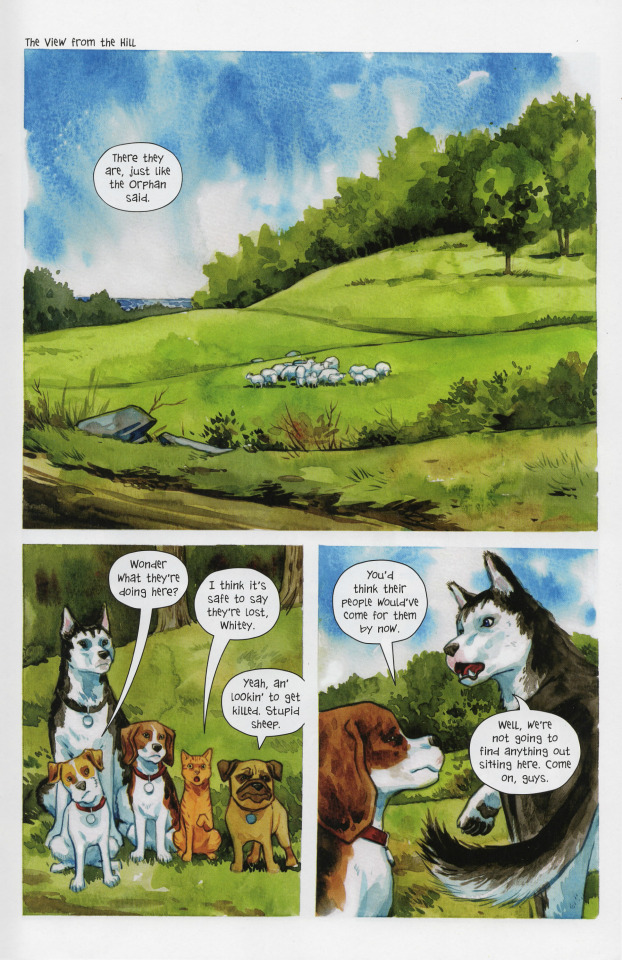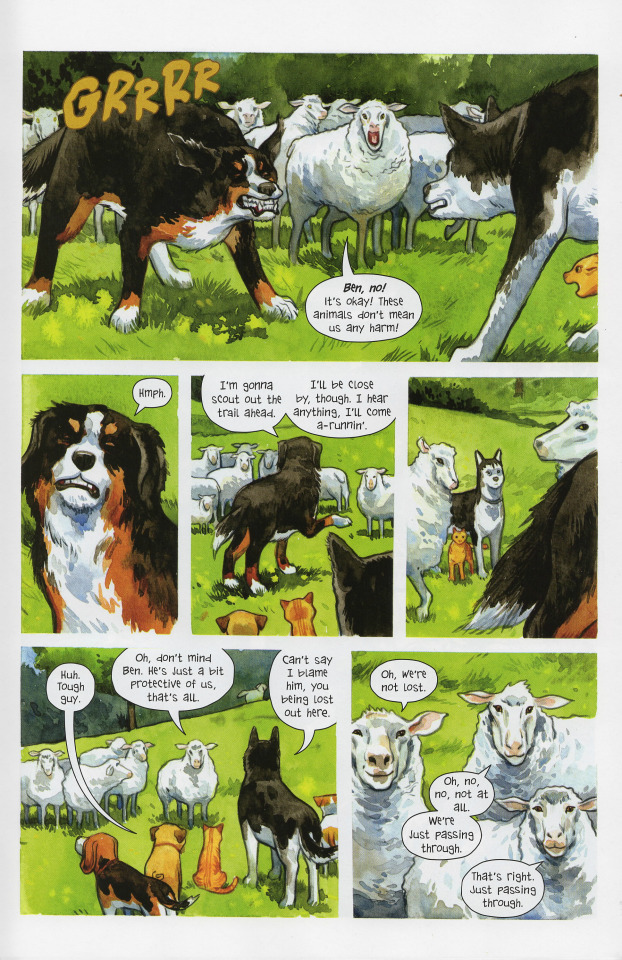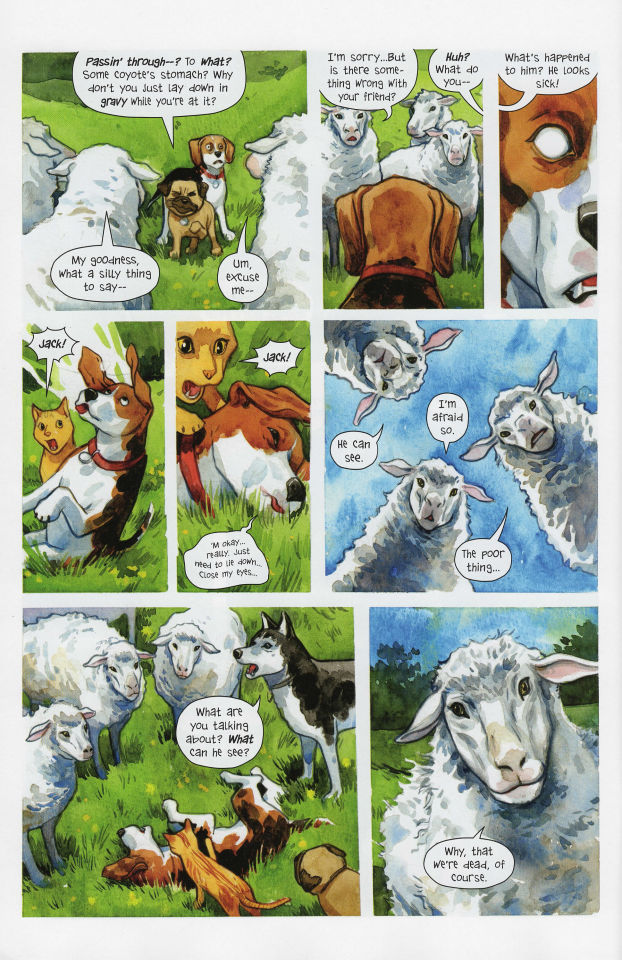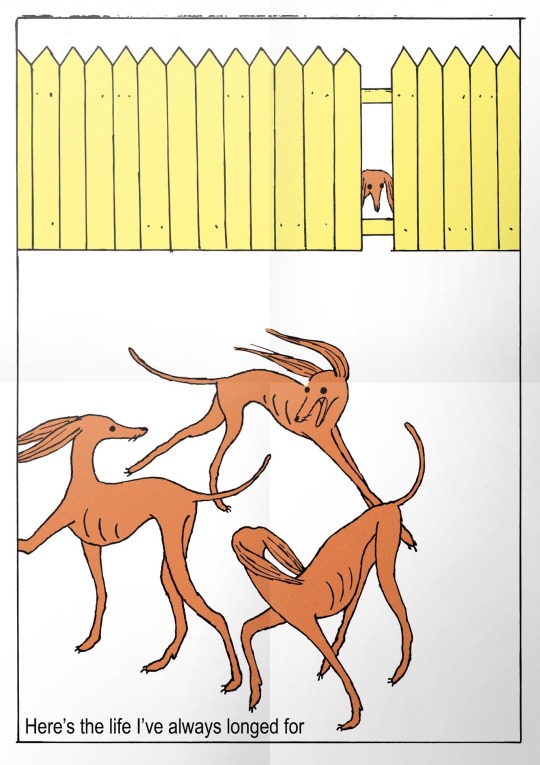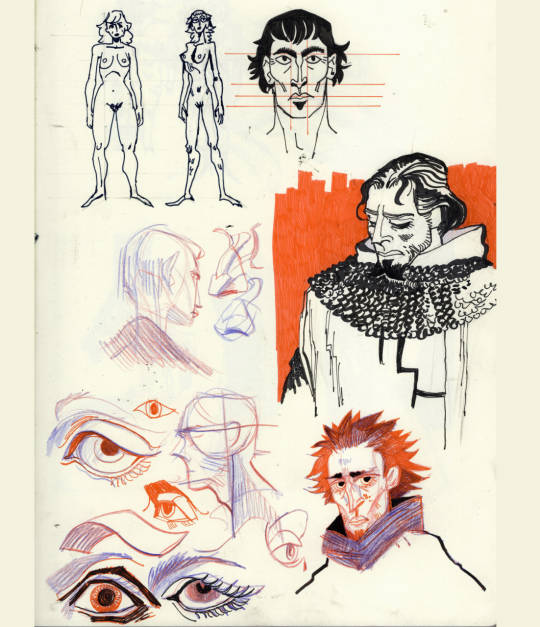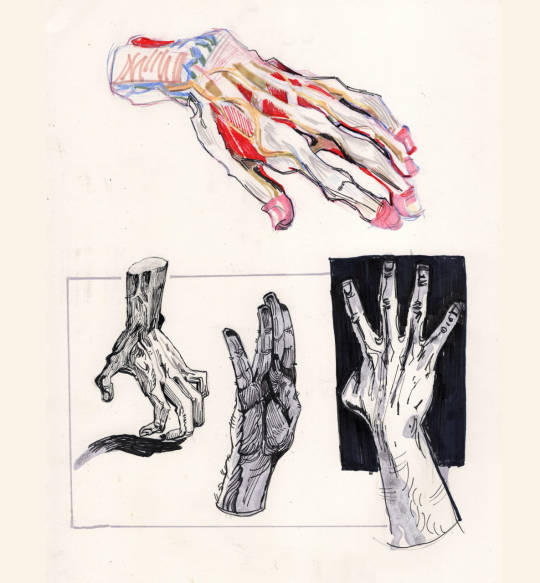Text
It's such a mervyn peake dead rat poem morning
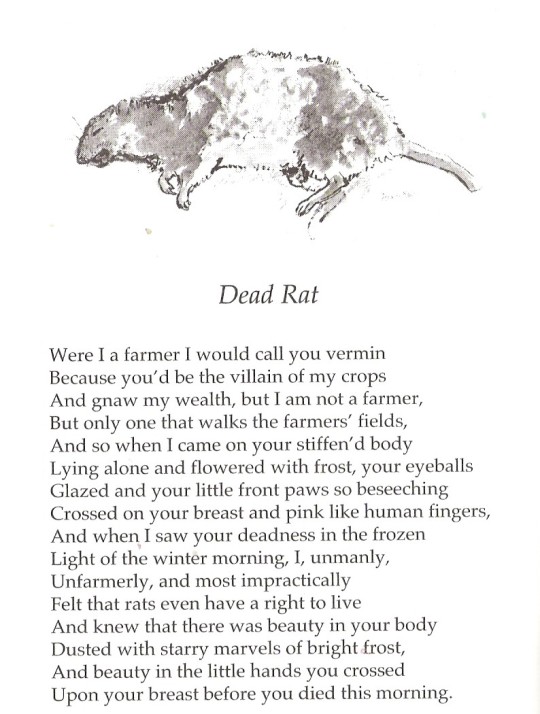
One of the poems ever.
10K notes
·
View notes
Text
“I first started noticing the journalists dying on Instagram. I'm a journalist, I'm Arab, and I've reported on war. A big part of my community is other Arab journalists who do the same thing.
And when someone dies, news travels fast. Recently, I pulled up the list that the Committee to Protect Journalists has been keeping and looked at it for the first time. There are 95 journalists and media workers on it as of today.
Almost everyone on it is Palestinian. Scrolling through, I started to get angry. These were the people carrying the burden of documenting this whole war.
Israel is not allowing foreign journalists into Gaza, except on rare occasions with military escorts. These people's names are being buried in a giant list that keeps growing. What I want to do is lift some of them off the list for a moment and give you a glimpse of who they were and the work they made.
I'll start with Sadi Mansour. Sadi was the director of Al-Quds News Network, and he posted a 22-second video on November 18. That was a report from the war, but it also gave me a picture into his marriage.
Sadi's wearing his press vest and looks exhausted. He's explaining that cell service and the Internet keep getting cut off, and it's often impossible to text or call anyone, including his wife. So they've resorted to using handwritten letters to communicate while he's out reporting, sending them back and forth with neighbors or colleagues.
He ends the video with a picture of one of these letters from his wife. In it, she writes,
‘Me and the kids stayed up waiting for you until the morning, and you didn't come home. We were really sad.
I kept telling the kids, Look, he's coming. But you didn't show up. May God forgive you.
Come home tomorrow and eat with us. Do you want me to make you kebab or maybe kapse? Bring your friends with you, it's okay.
And give Azeez the battery to charge. What do you think about me sending you handwritten letters with messenger pigeons from now on? Ha ha ha.
I'm just kidding. I want to curse at you, but we're living in a war. Too bad.
Okay, I love you. Bye.’
A few hours after he shared that letter, Sadie and his co-worker Hassouna Saleem were at Sadie's home, when they were killed by an Israeli air strike that hit his house.
His wife and kids, who weren't there, survived.
Gaza is tiny, and the journalist community is really close. Reading the list, you can see all the connections between people. Like with Brahim Lafi.
Brahim was a photojournalist, one of the first journalists to die. He was killed while reporting on October 7. He was just 21, still new to journalism.
On his Instagram, you can see that in his posts just a few years ago, he was still practicing his photography, taking pictures of coffee cups and flowers. Then he started doing beautiful portraits and action shots. You can really feel him starting to become a journalist.
Clicking around on Instagram, I found a tribute post about Brahim from his co-worker Rushdie Sarraj. In this photo, Brahim staring intently at the back of a camera, his face lit up by the light from the viewfinder. He looks so young.
The caption reads, My assistant is gone. Brahim is gone. Rushdie himself was a beloved journalist and filmmaker.
And I know that because he's also on the list. He was killed just two weeks after Brahim. I read the tribute post to him too.
I saw this over and over again. Journalists posting tributes, who were then killed themselves soon after. And a tribute goes up for them.
And then the pattern continues.
Thank you.
Something else I saw over and over on the list, journalists later in the war who had become aware that they could be making their last reports. They'd say it at the beginning of their videos. And those were the hardest to watch, especially when it was true.
One video like that was posted by Ayat Hadduro. Ayat was a freelance journalist and video blogger. Her videos before the war covered a wide range from what I can tell, interviews about women in politics.
She even appeared in a commercial for ketchup-flavored chips. She clearly liked being in front of the camera. Once the war started, Ayat's pivoted to covering bombings and food shortages.
On November 20, she posted a video report from her home. You can hear the airstrikes hitting very close to where she is. It's scary.
‘This is likely my last video. Today, the occupation forces dropped phosphorus bombs on Beit Lahya area and frightening sound bombs. They dropped letters from the sky, ordering everyone to evacuate.
Everyone ran into the streets in the craziest way. No one knows where to go.
But everyone else has evacuated. They don't know where they're going. The situation is so scary.
What's happening is so tough, and may God have mercy on us.’
She was killed later that day.
Targeting journalists, in case you didn't know, is a war crime. So far, the Committee to Protect Journalists has found that three of the journalists on the list were explicitly targeted by the IDF, the Israeli military. Investigations by the Washington Post and Reuters, Human Rights Watch and the United Nations have also raised serious questions in these three cases.
And the Committee to Protect Journalists is investigating 10 other killings. When we reached out to the IDF for comments, they said, quote, the IDF has never, and will never, deliberately target journalists. That's the answer they always give in these situations.
Meanwhile, dozens of seasoned reporters have fled Gaza. Journalists who worked for Al Jazeera, the BBC, the New York Times, the Washington Post, Reuters, Agence France-Presse. So many media offices were demolished in Israeli airstrikes that the Committee to Protect Journalists stopped counting.
It's not just individual lives that have been destroyed. It's an entire infrastructure.
Thank you.
The name on the list that was hardest for me to look at was Issam Abdullah, because I'd crossed paths with him once. Issam was a Lebanese journalist, a video journalist for Reuters for many, many years. He had just won an award for coverage of Ukraine.
I'm Lebanese and still report there sometimes, and I'd worked with Issam a couple of summers ago. He helped me film a sort of random story in Beirut. I was interviewing this entrepreneur who had started a sperm freezing company after an accident where he spilled a tray of hot coffee on his private area, burning himself.
I know, ridiculous. It was a really silly shoot. Right after we said cut and started to rap, Issam started this whole bit about being in his late 30s, reconsidering his own sperm quality and everything he now realized he was doing to hurt it, and no one could stop laughing.
It was a really good day that felt good to remember and to remember him that way. Issam was killed by the IDF on October 13. His death was one of the three that the Committee to Protect Journalists has identified as a targeted killing.
He was fired upon by an Israeli tank while standing in an empty field on the Lebanon-Israel border with a small group of other journalists. Everyone was wearing press vests with cameras out. They were covering the Hezbollah part of this war.
A few other journalists were injured in the attack, which was captured on video. The IDF says they were responding to firing from Hezbollah, not targeting the journalists. But multiple investigations, including by Reuters, the United Nations, Amnesty International and the AFP, found no evidence of any firing from the location of the journalists before the IDF shot at them.
The journalists in the group and video footage confirmed that there was no military activity near them. I had only met Issam once, barely knew him, but it affected me so much when he died. I know that he understood the risks of his job, but somehow it still felt so random and unfair that he would be struck down like that, following the rules, wearing his press vest and helmet, and a pack of reporters on a sunny day in an open field.
I find myself thinking about him all the time. His last Instagram post was commemorating another journalist, this iconic reporter Shereen Abou Aql who had been killed by the IDF. When I first saw that post in October, I thought how ironic because a week later, Isam also was killed by the IDF.
But then, after spending time reading the list, I realized how common this had become. I still haven't finished going through the list and looking up the people on it. I keep finding things that stick with me, like the funny way this one radio host would cut off a caller who was rambling on for too long.
A tweet from reporter Al-Abdallah that quoted Sylvia Plath. It read, What ceremony of wars can patch the havoc? I'm going to keep going down the list, even though this story is over now.
Just for myself. My own way of bearing witness. Which is, in the end, all that these journalists were trying to do.”
—DANA BALLOUT, The 95. Dana sifts through a very long list—the list of journalists killed in the Israel-Hamas war, and comes back with five small fragments of the lives of the people on it. Dana is a Lebanese-American, Emmy-nominated documentary producer.
2K notes
·
View notes
Text
reminder that digital libraries aren’t owned, also why pirating digital content is a necessity
42K notes
·
View notes
Text
A very important video on the money Glasgow made from the empire and especially Scotland role in the slave trade
3K notes
·
View notes
Text
we all have our own crosses to bear. for example. sometimes i enjoy a panic at the disco song
43K notes
·
View notes
Text

Konstantin Gorbatov - The Invisible City of Kitezh (1913)
392 notes
·
View notes
Text
there is a huge difference between criticizing an institution and criticizing individual behavior. i can criticize the makeup industry without criticizing the 14 year old girl who uses concealer because she’s self-conscious about her acne; i can criticize the plastic surgery industry without vilifying the woman who decided to get a nose job after two decades of pointed comments and bullying. it is intellectually dishonest to respond to an institutional criticism as if it were a personal attack; on the flip side, it is cruel and unnecessary to leverage personal attacks in the name of institutional criticism
if i see one (1) more person respond to a perfectly reasonable beauty-industry-critical sentiment with “but i personally enjoy eyeshadow. why are you attacking people who like eyeshadow :(” or “exactly, all women who wear makeup are miserable and brainwashed” i am going to climb a tree and bite the top of it
75K notes
·
View notes
Text
It has apparently been ten years since the time one of my professors pulled me aside to tell me I had to clean up after making out before going to class because my lipstick was everywhere and I realized "actually my tapdancing group decided we all had to dress like the Joker for our performance" was an infinitely worse explanation so I just said I was sorry
65K notes
·
View notes
Text
You guys rlly don't realise how much knowledge is still not committed to the internet. I find books all the time with stuff that is impossible to find through a search engine- most people do not put their magnum opus research online for free and the more niche a skill is the less likely you are to have people who will leak those books online. (Nevermind all the books written prior to the internet that have knowledge that is not considered "relevant" enough to digitise).
Whenever people say that we r growing up with all the world's knowledge at our fingertips...it's not necessarily true. Is the amount of knowledge online potentially infinite? Yes. Is it all knowledge? No. You will be surprised at the niche things you can discover at a local archive or library.
74K notes
·
View notes
Photo

A playlist for a strange, soft spring evening, where you feel yourself slipping between here and some other place.
10K notes
·
View notes
